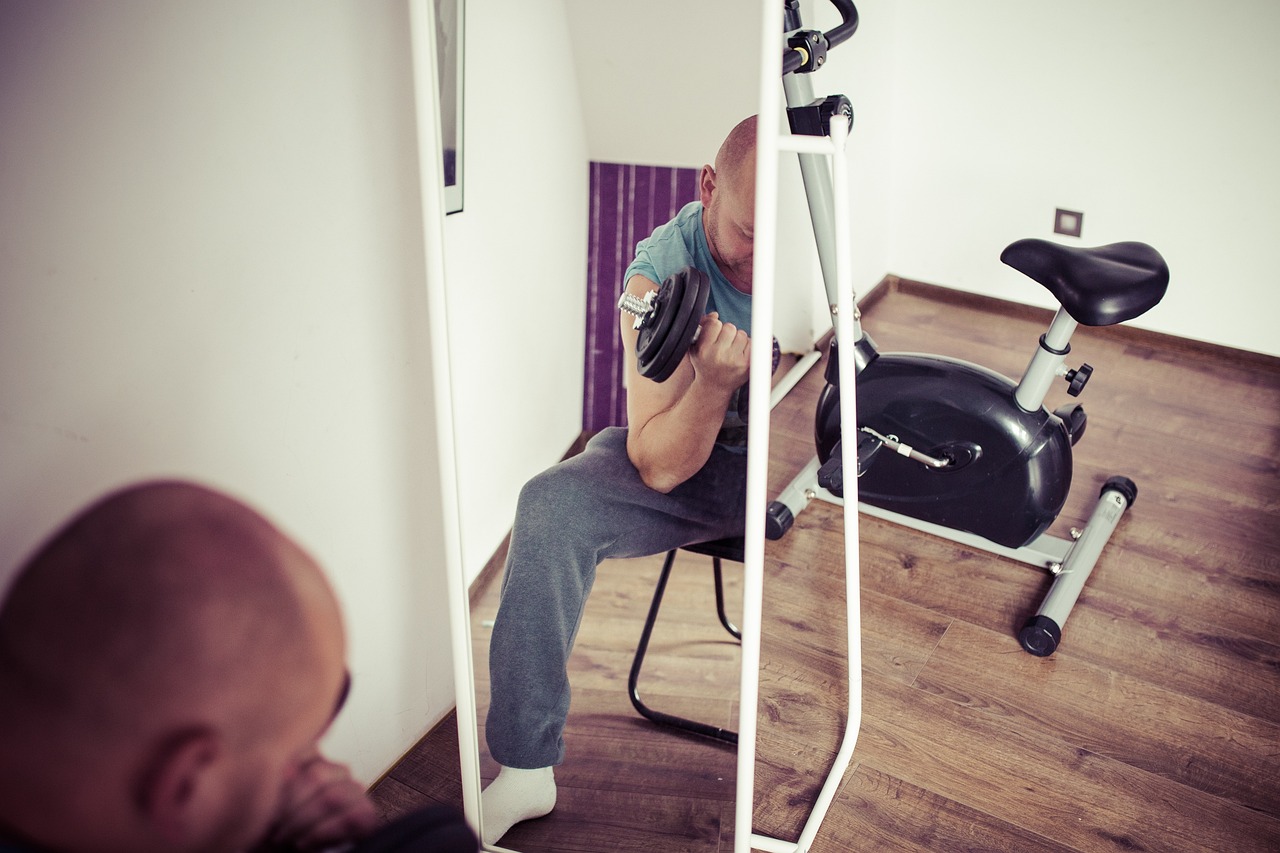
As we all know, exercise is great for our physical health. But did you know that it can also work wonders for our mental health? Specifically, cardio workouts have been found to have a significant impact on reducing stress, anxiety, and depression. So, if you’re looking to boost your mood and calm your mind, it might be time to lace up your sneakers and hit the pavement. In this article, we’ll explore the mental health benefits of cardio exercise and why it’s worth incorporating into your routine.
1. Pump Up Your Mental Health: The Surprising Benefits of Cardiovascular Exercise
Regular exercise has numerous benefits for your overall health, including your mental well-being. Cardiovascular exercise, in particular, has been shown to have surprising benefits for your mental health. Here are some of the ways that cardio can help improve your mental health:
- Reduced stress and anxiety: Cardiovascular exercise has been shown to reduce levels of the stress hormone cortisol, which can help alleviate feelings of anxiety and stress. Additionally, exercise releases endorphins, which can improve your mood and promote feelings of well-being.
- Improved cognitive function: Cardiovascular exercise has been linked to improved cognitive function, including better memory, attention, and decision-making abilities. It may also help reduce the risk of cognitive decline and dementia in older adults.
- Better sleep: Regular exercise, including cardiovascular exercise, has been shown to improve sleep quality and duration. This can help reduce symptoms of depression and anxiety, as well as improve overall well-being.
In addition to these benefits, cardiovascular exercise can also help improve your physical health, including reducing the risk of heart disease, stroke, and other chronic conditions. So if you’re looking to improve your mental health and overall well-being, consider adding some cardio to your exercise routine. Whether it’s running, cycling, or dancing, there are plenty of ways to get your heart pumping and reap the benefits for your mind and body.
2. From Sweat to Serenity: How Cardio Can Improve Your Emotional Well-Being
Cardiovascular exercise, commonly known as cardio, is a type of physical activity that increases your heart rate and breathing rate. It includes activities such as running, cycling, dancing, and swimming. While cardio is often associated with physical health benefits such as weight loss and improved cardiovascular health, it also has a positive impact on emotional well-being.
Research has shown that cardio can help reduce symptoms of depression and anxiety by releasing endorphins, which are the body’s natural feel-good chemicals. It also helps reduce stress levels by decreasing the production of cortisol, a hormone that is released in response to stress. Regular cardio exercise can also improve self-esteem and confidence, as it provides a sense of accomplishment and control over one’s physical and mental health.
Incorporating cardio into your daily routine can be as simple as taking a brisk walk or jog around the neighborhood, or joining a dance class. It’s important to find an activity that you enjoy and that fits your lifestyle. Aim for at least 30 minutes of moderate-intensity cardio exercise most days of the week. Remember to always consult with your healthcare provider before starting a new exercise routine, especially if you have any underlying health conditions. With consistent effort, you can reap the emotional benefits of cardio exercise and move from sweat to serenity.
3. The Heart-Mind Connection: Exploring the Link Between Physical Fitness and Mental Health
The heart and mind are two vital parts of our body that are interconnected in more ways than one. Physical fitness and mental health are two aspects that are closely linked to each other. Here are some ways in which physical fitness can positively impact our mental health:
- Reduces stress: Exercise is a great stress-buster. It helps to reduce the levels of stress hormones in our body and releases endorphins, which are natural mood boosters.
- Improves self-esteem: Regular exercise can help improve our physical appearance, which in turn can boost our self-esteem and confidence levels.
- Boosts cognitive function: Exercise can improve blood flow to the brain, which can enhance cognitive function, memory, and concentration.
On the other hand, poor physical health can have a negative impact on our mental well-being. Here are some ways in which poor physical health can affect our mental health:
- Increases the risk of depression: Chronic health conditions can increase the risk of depression and anxiety.
- Reduces energy levels: Poor physical health can lead to fatigue and lethargy, which can negatively impact our mood and mental health.
- Impairs cognitive function: Poor physical health can impair cognitive function, memory, and concentration, which can negatively impact our mental health.
In conclusion, it is important to maintain good physical health to ensure good mental health. Regular exercise, a balanced diet, and adequate sleep are some of the ways in which we can take care of our physical health and improve our mental well-being. In conclusion, the benefits of cardiovascular exercise extend far beyond just physical health. The mental health perks of a fit heart and calm mind are undeniable, providing a powerful tool for combatting stress, anxiety, and depression. Whether it’s a brisk walk in the park, a challenging spin class, or a long run, incorporating regular cardio into your routine can help you feel happier, more energized, and more focused. So next time you lace up your sneakers, remember that you’re not just doing your body a favor – you’re boosting your mental health too.
